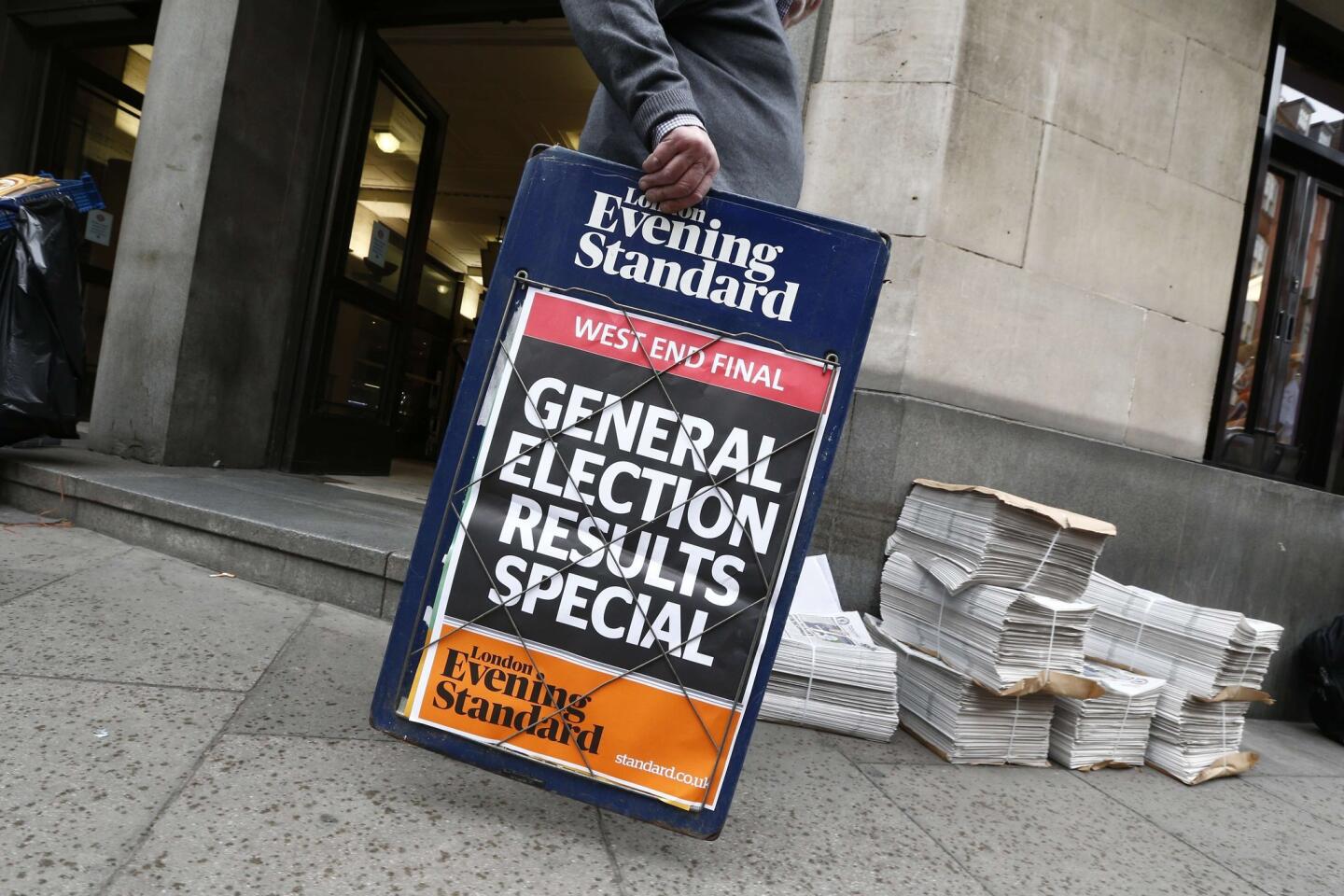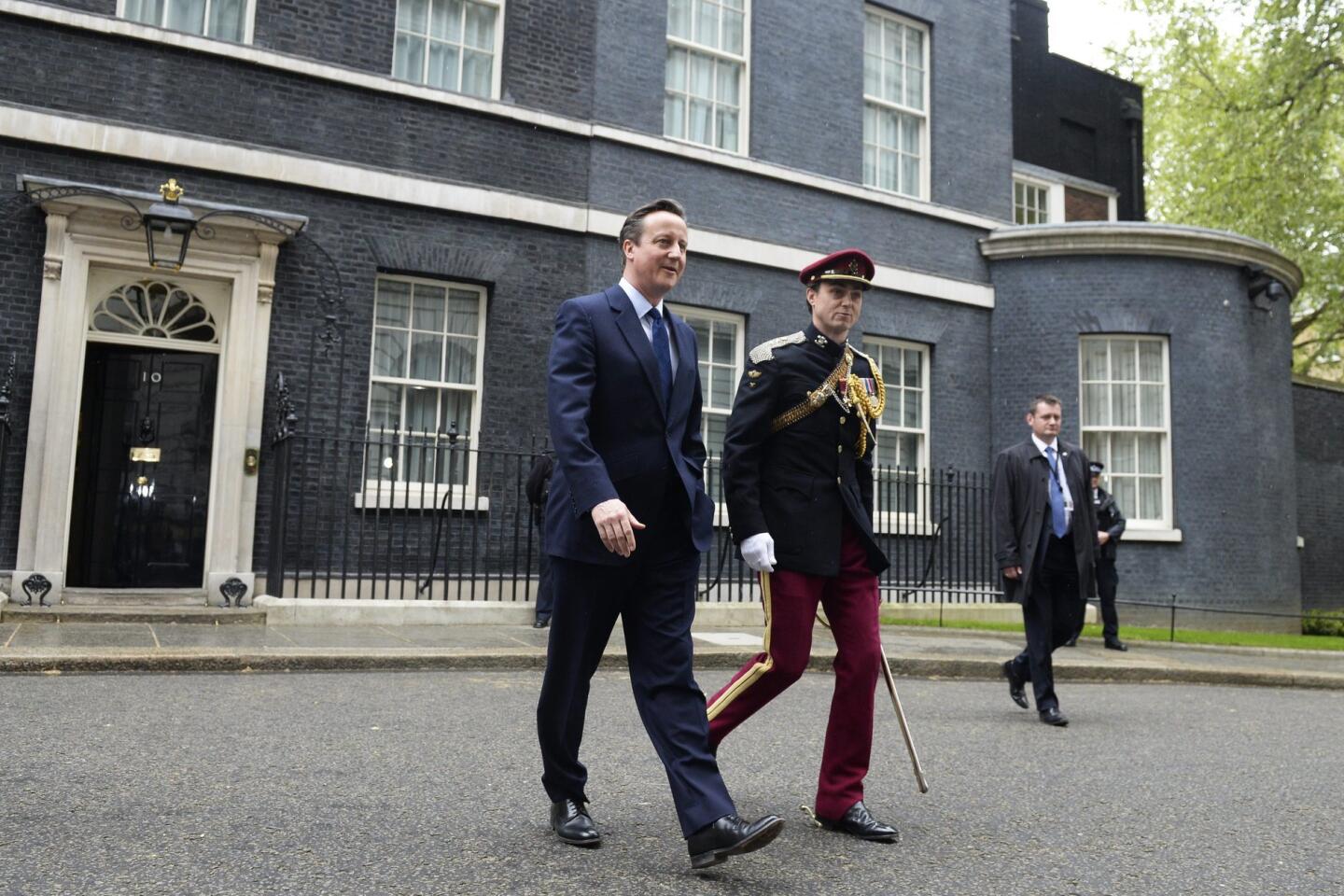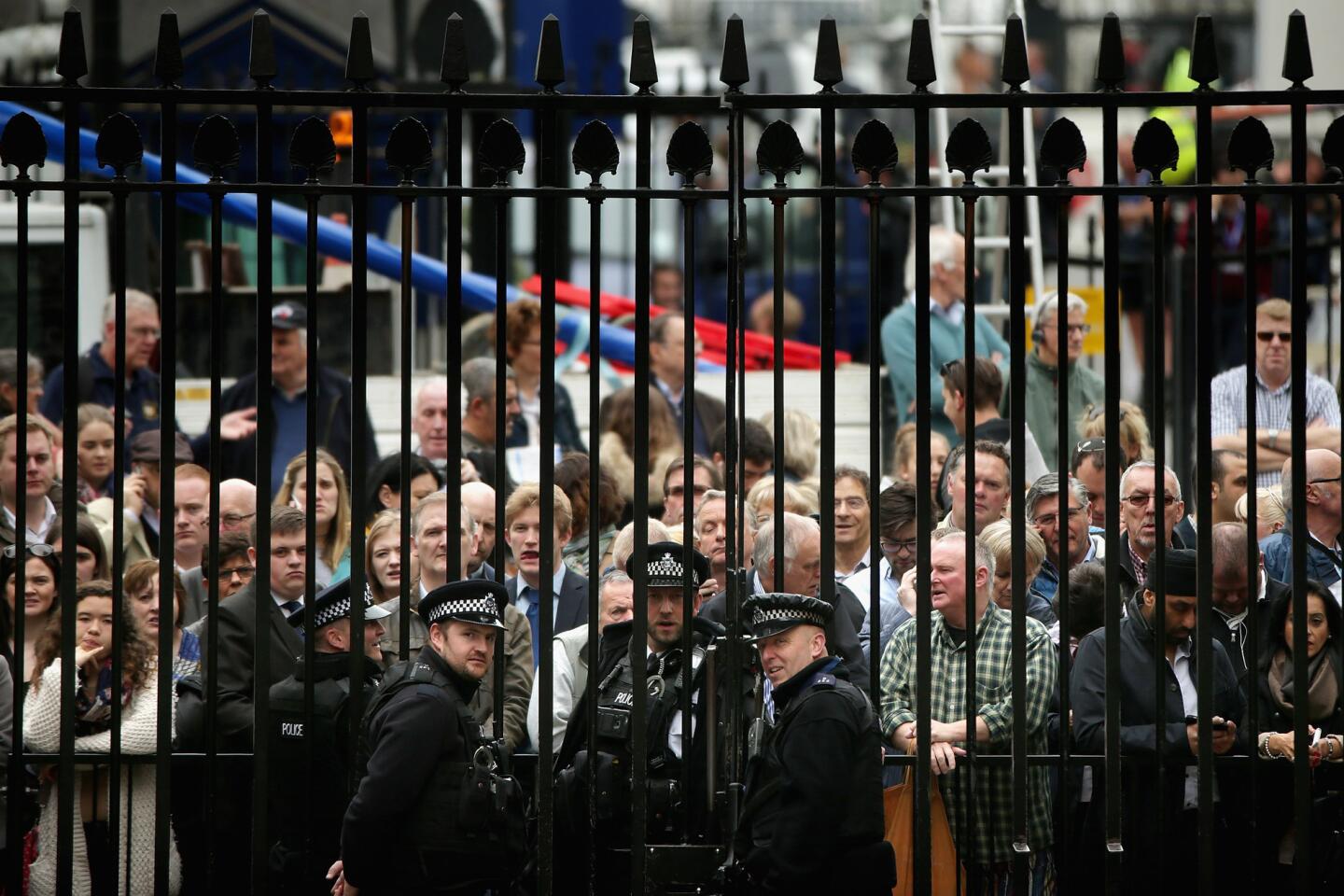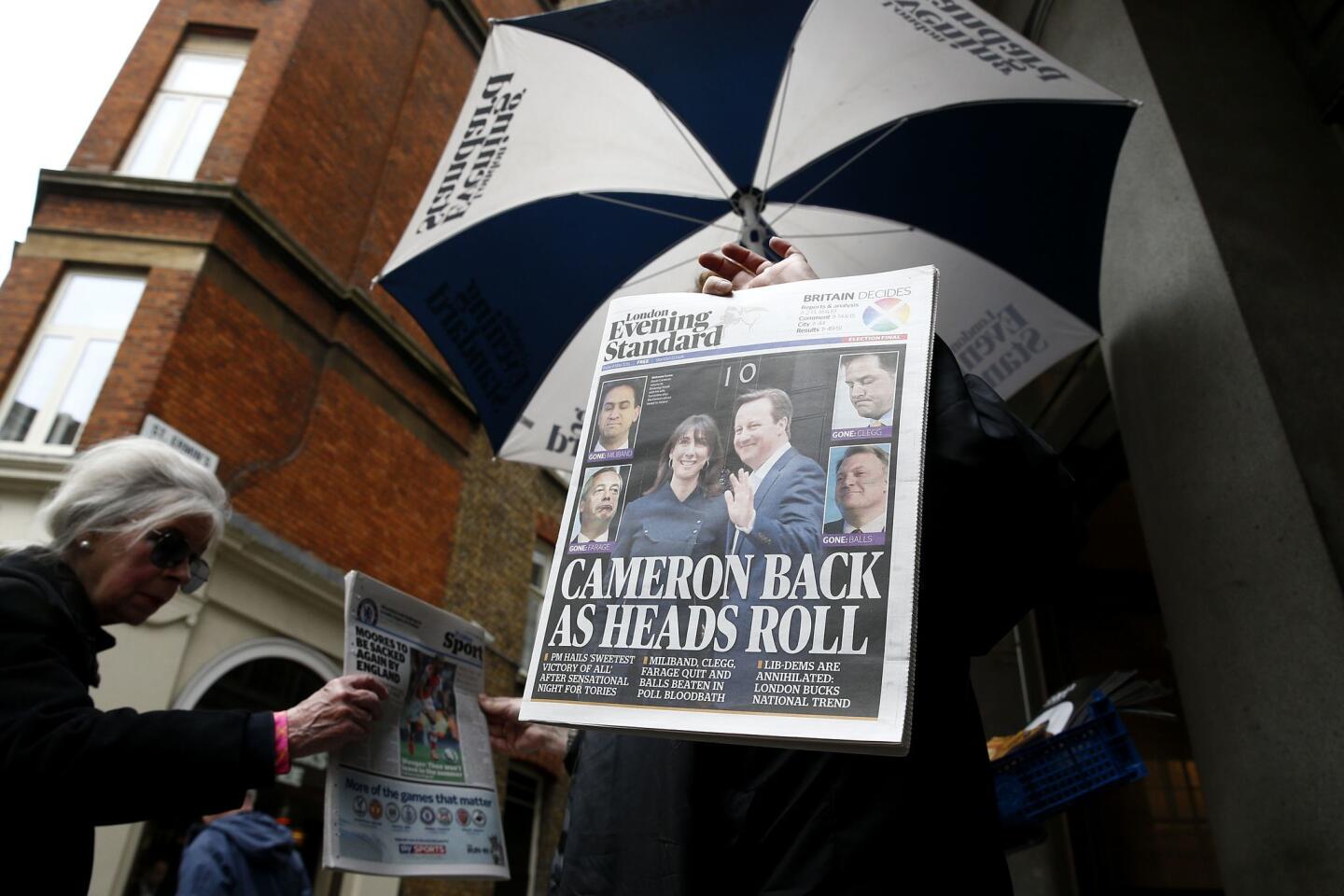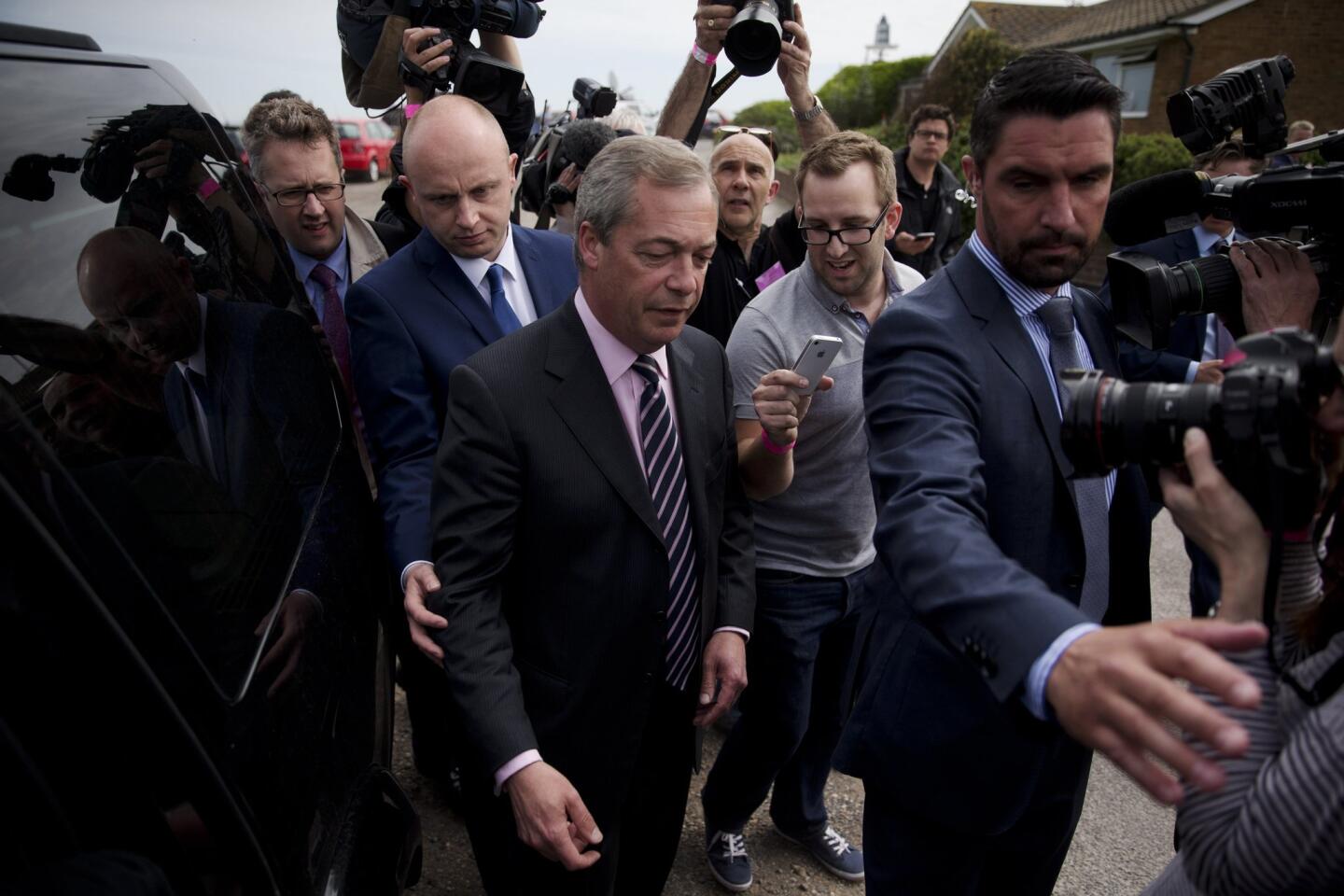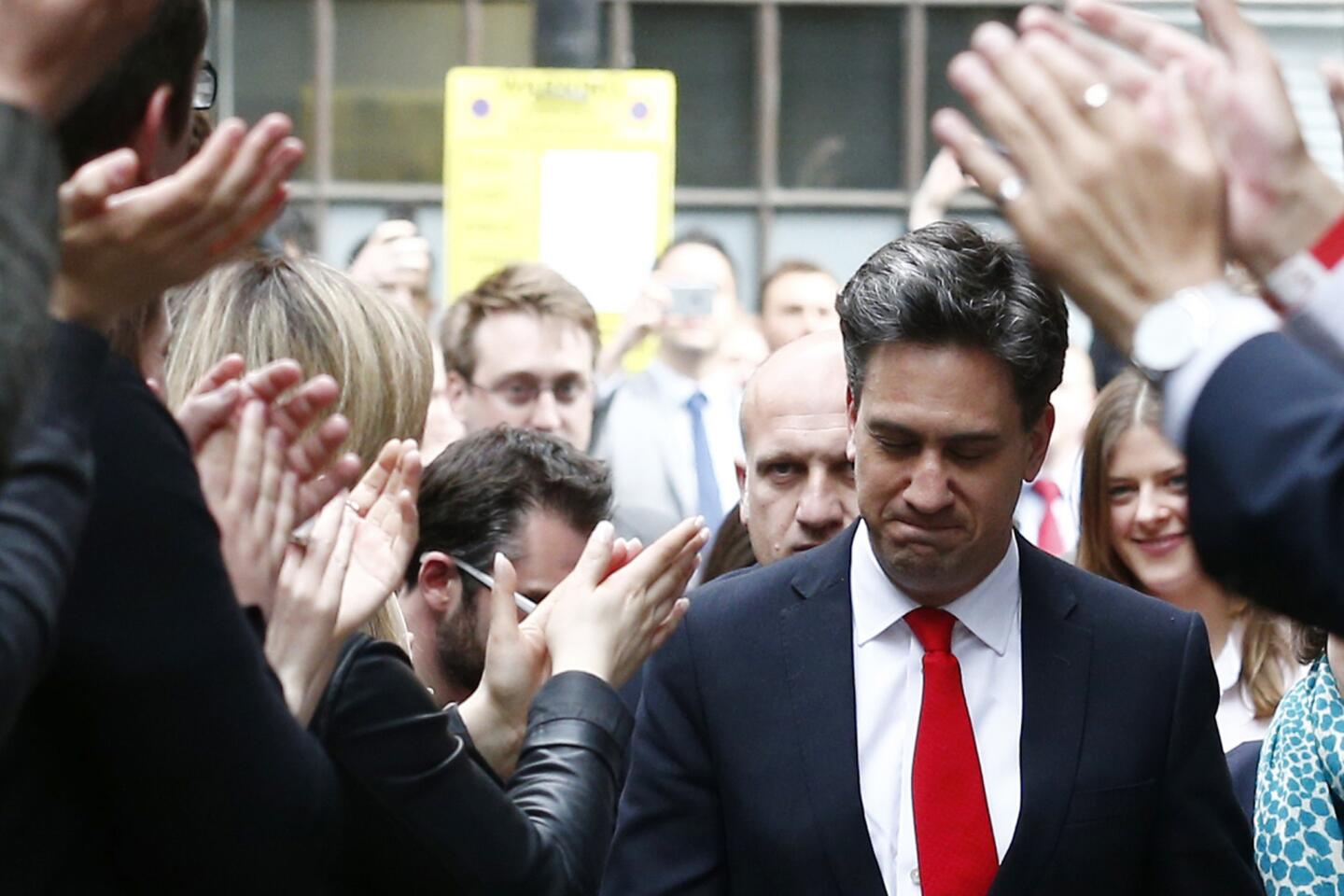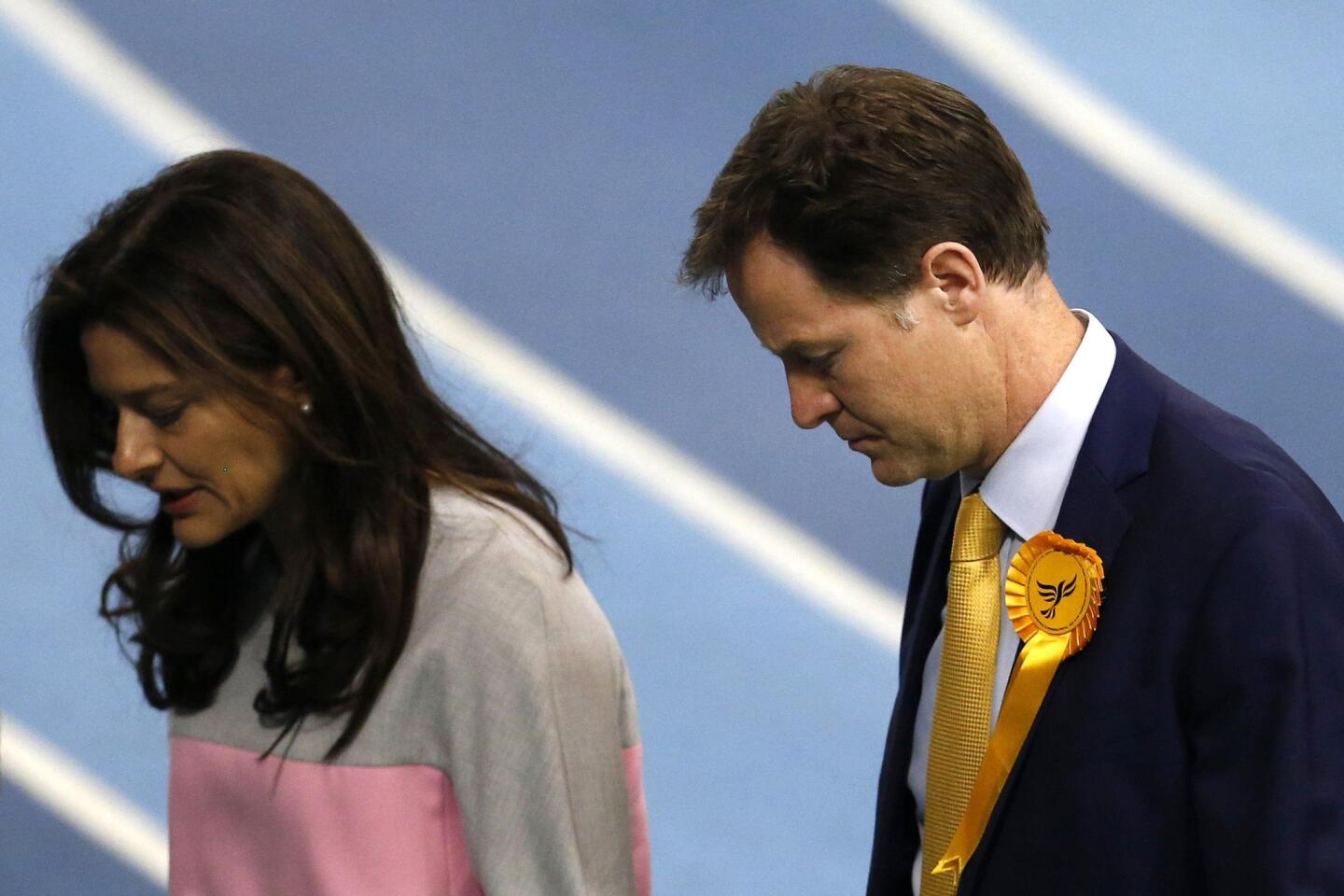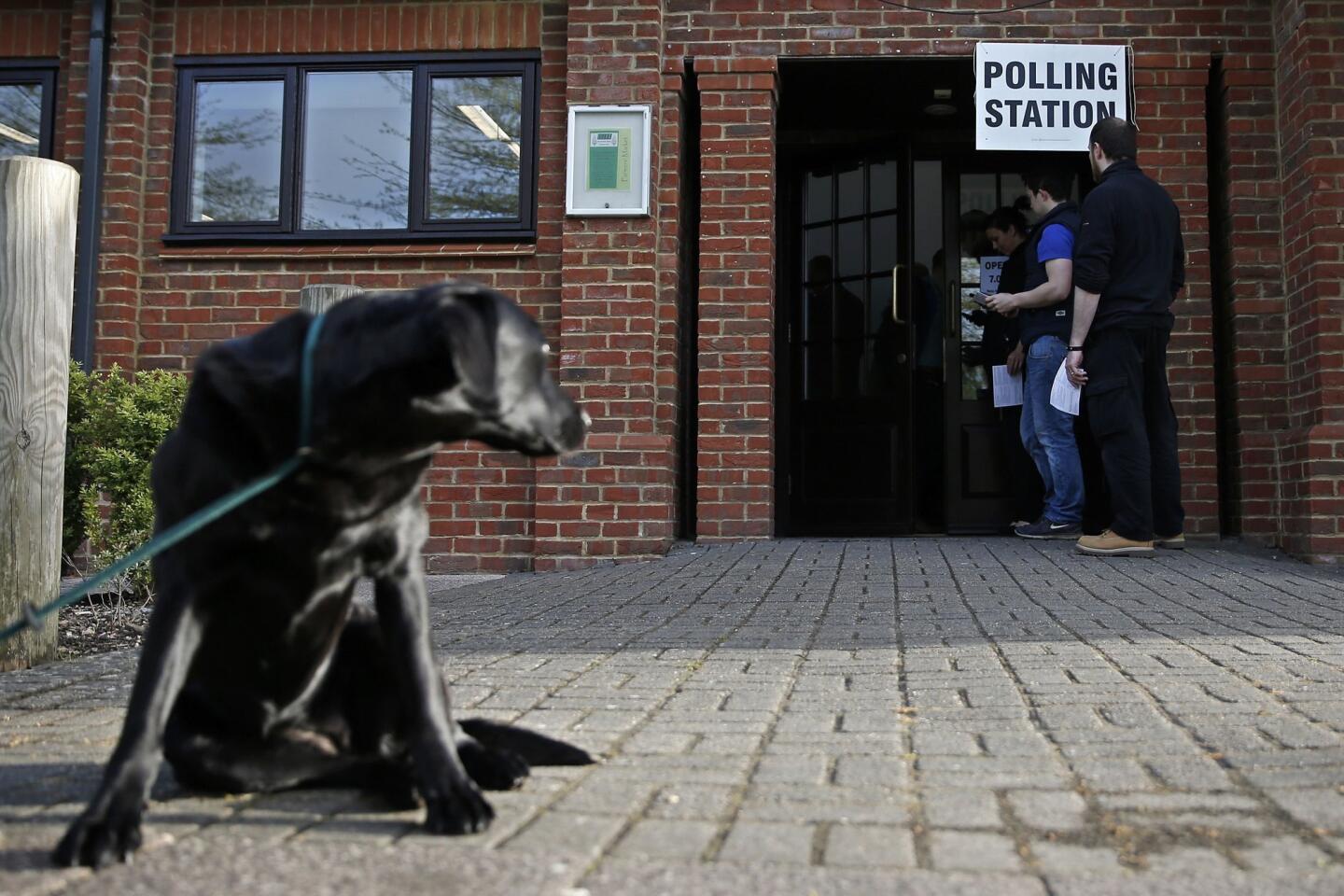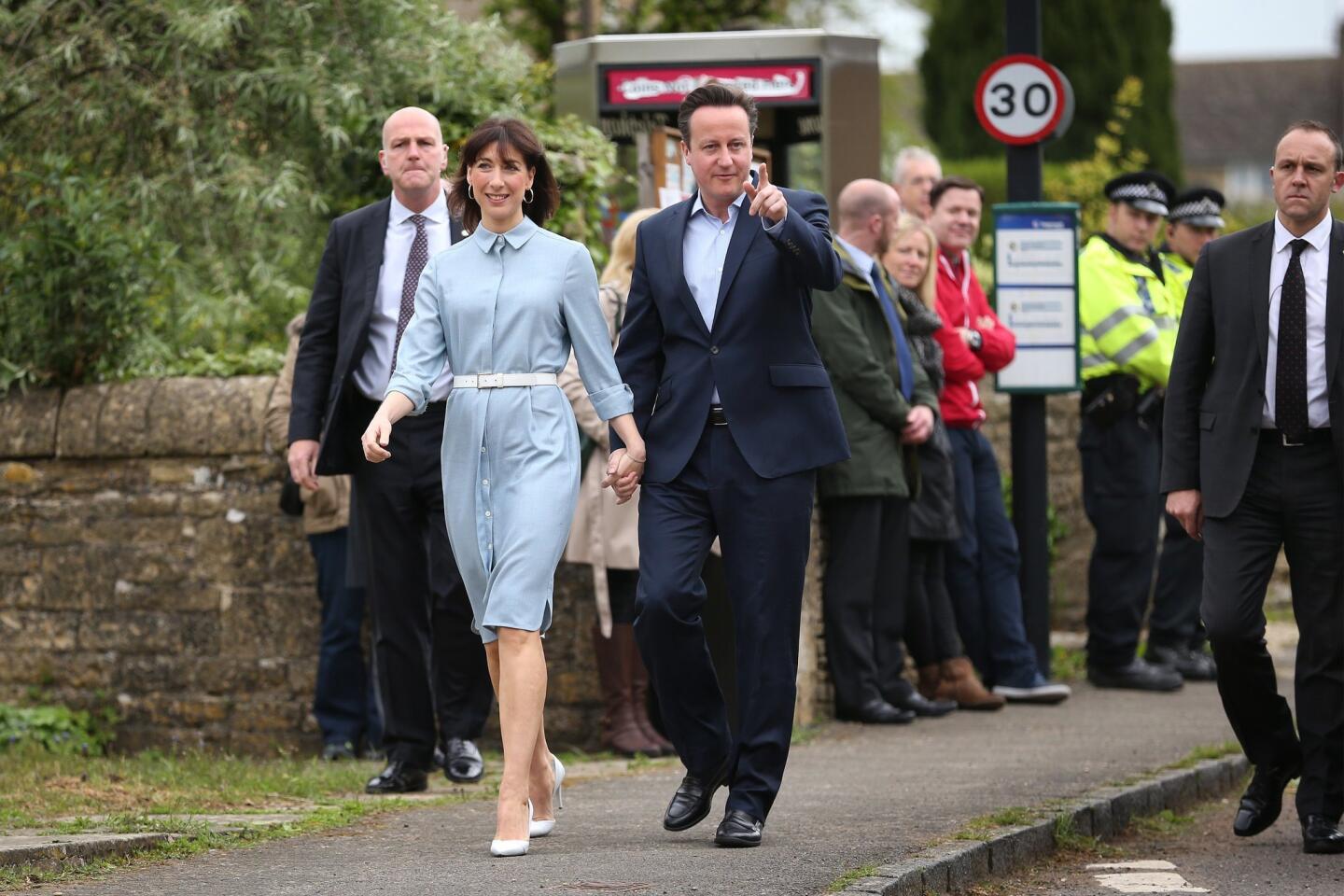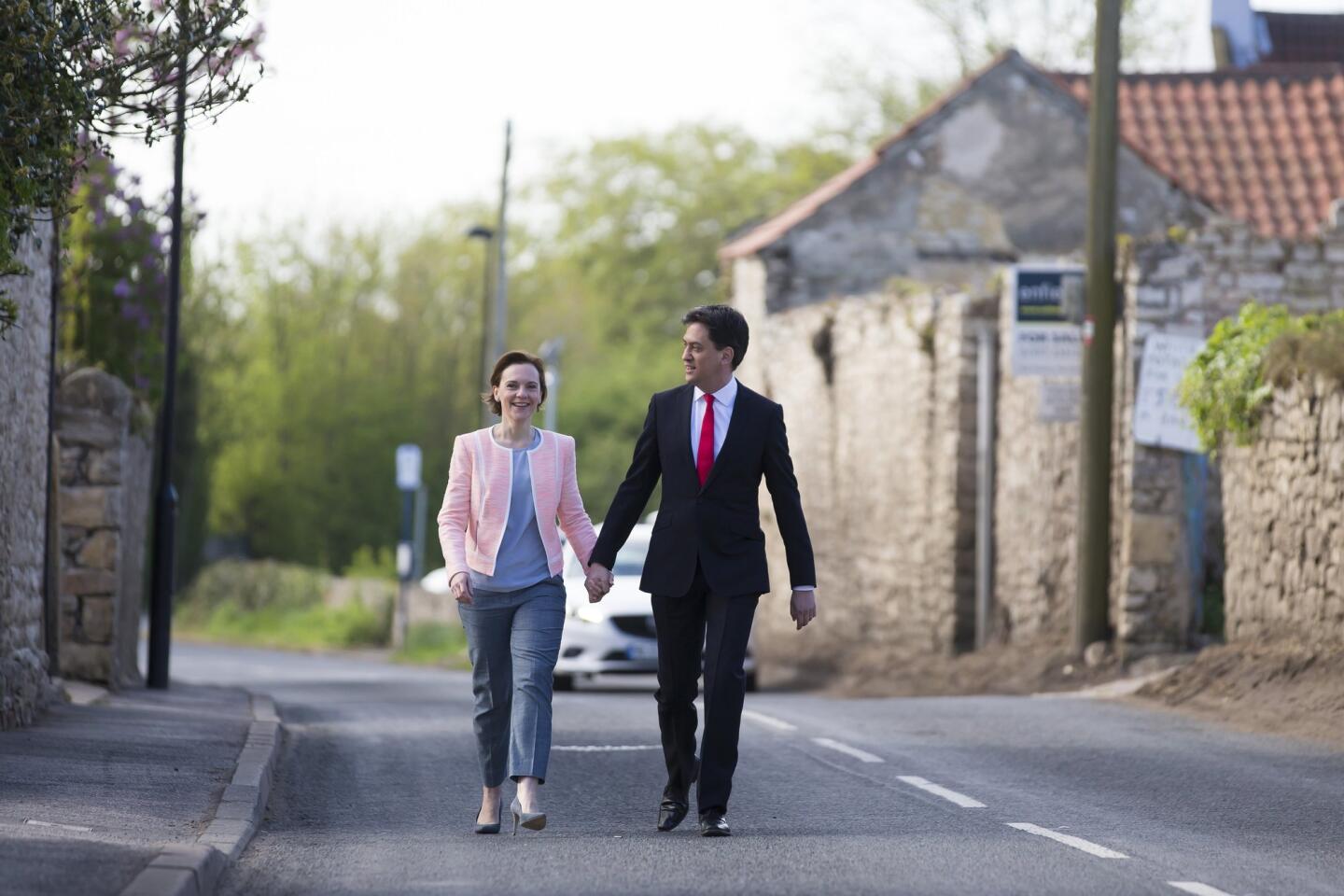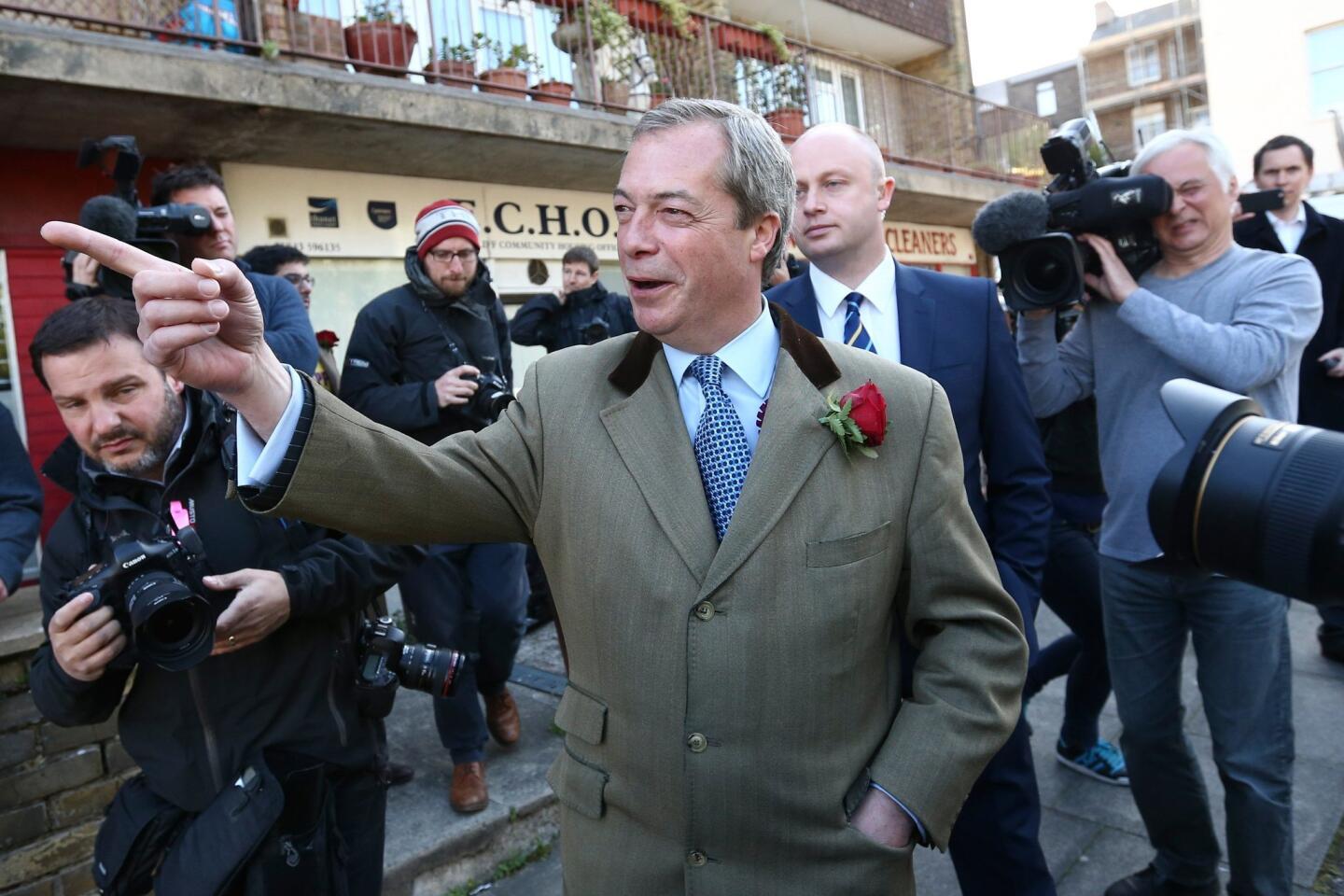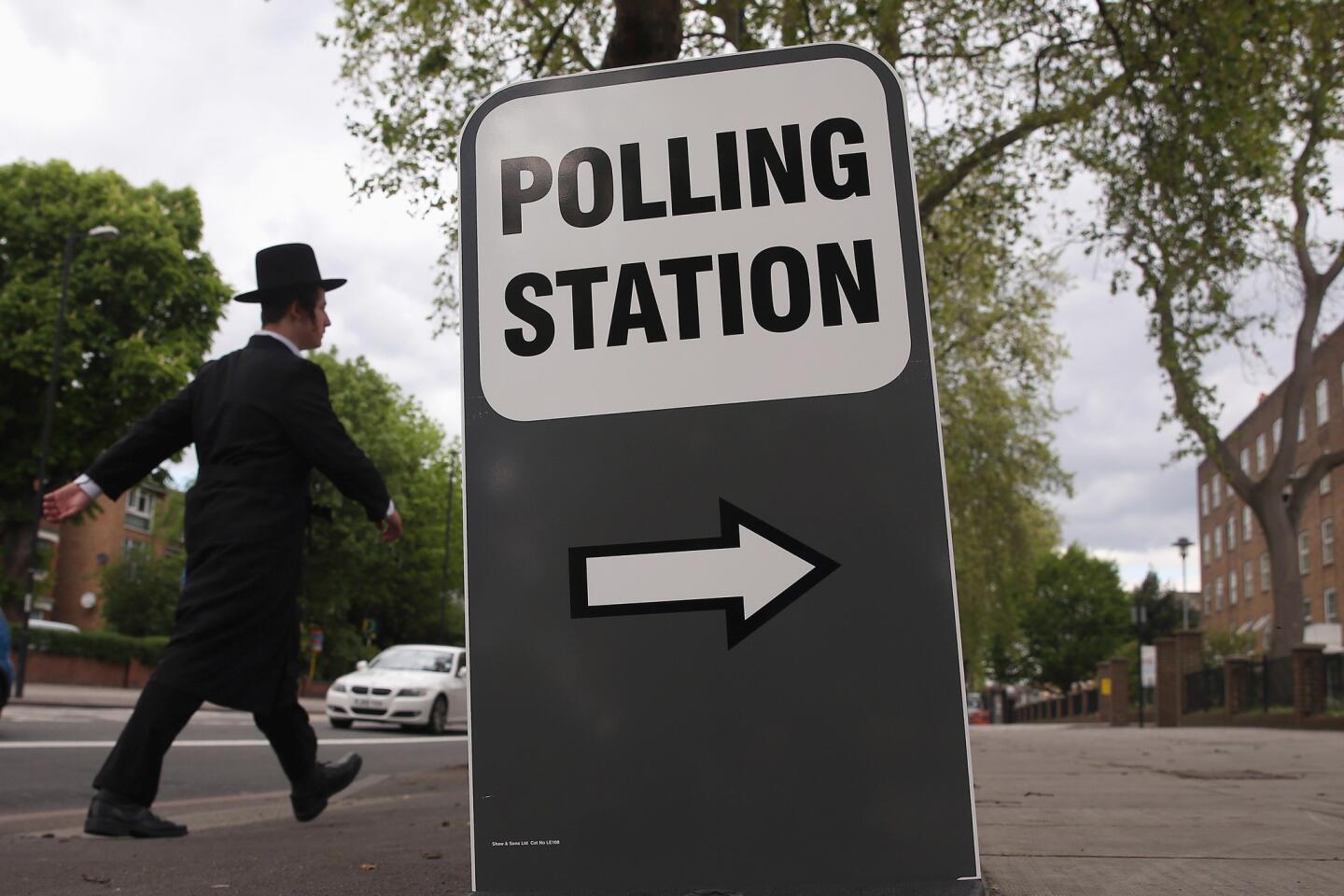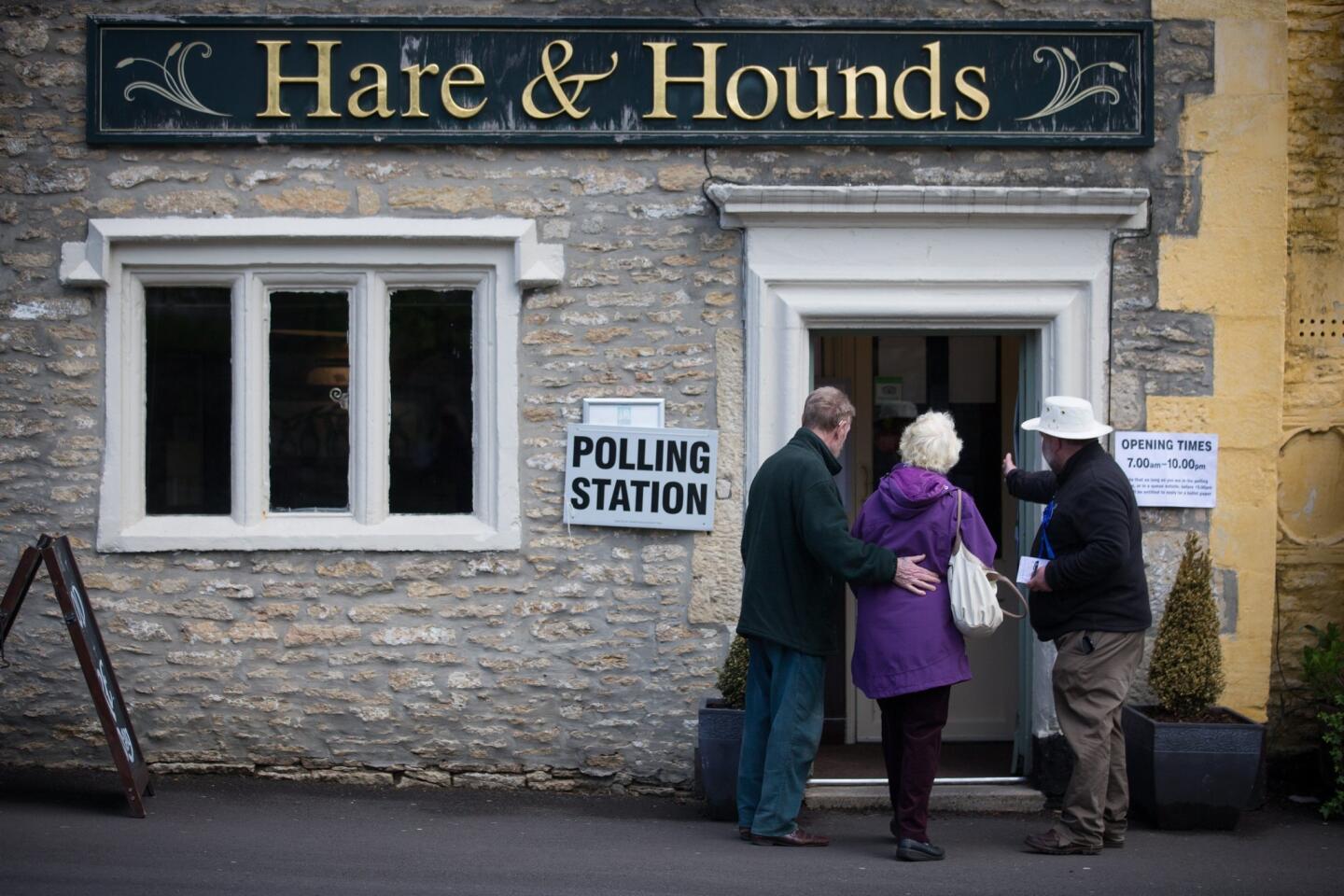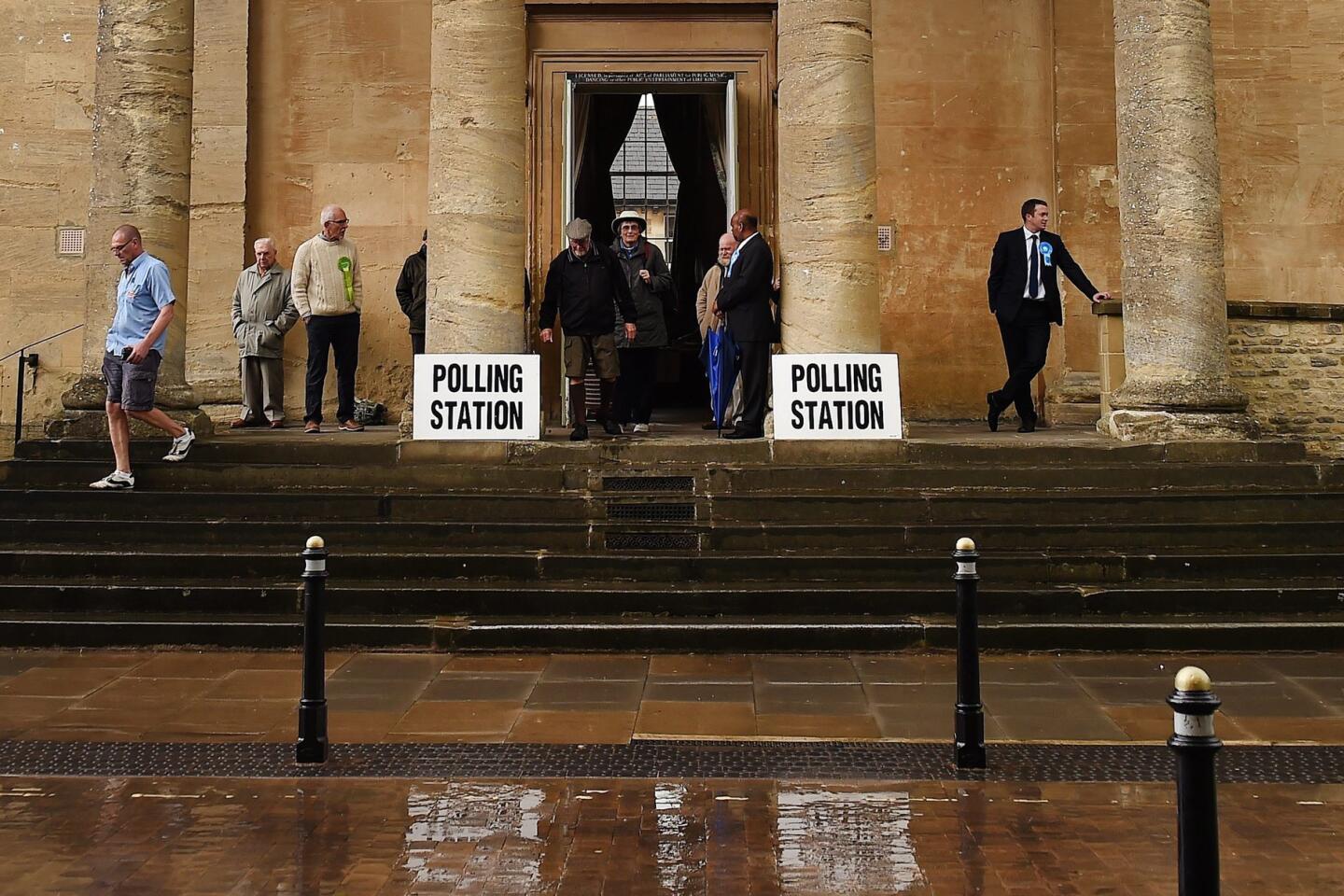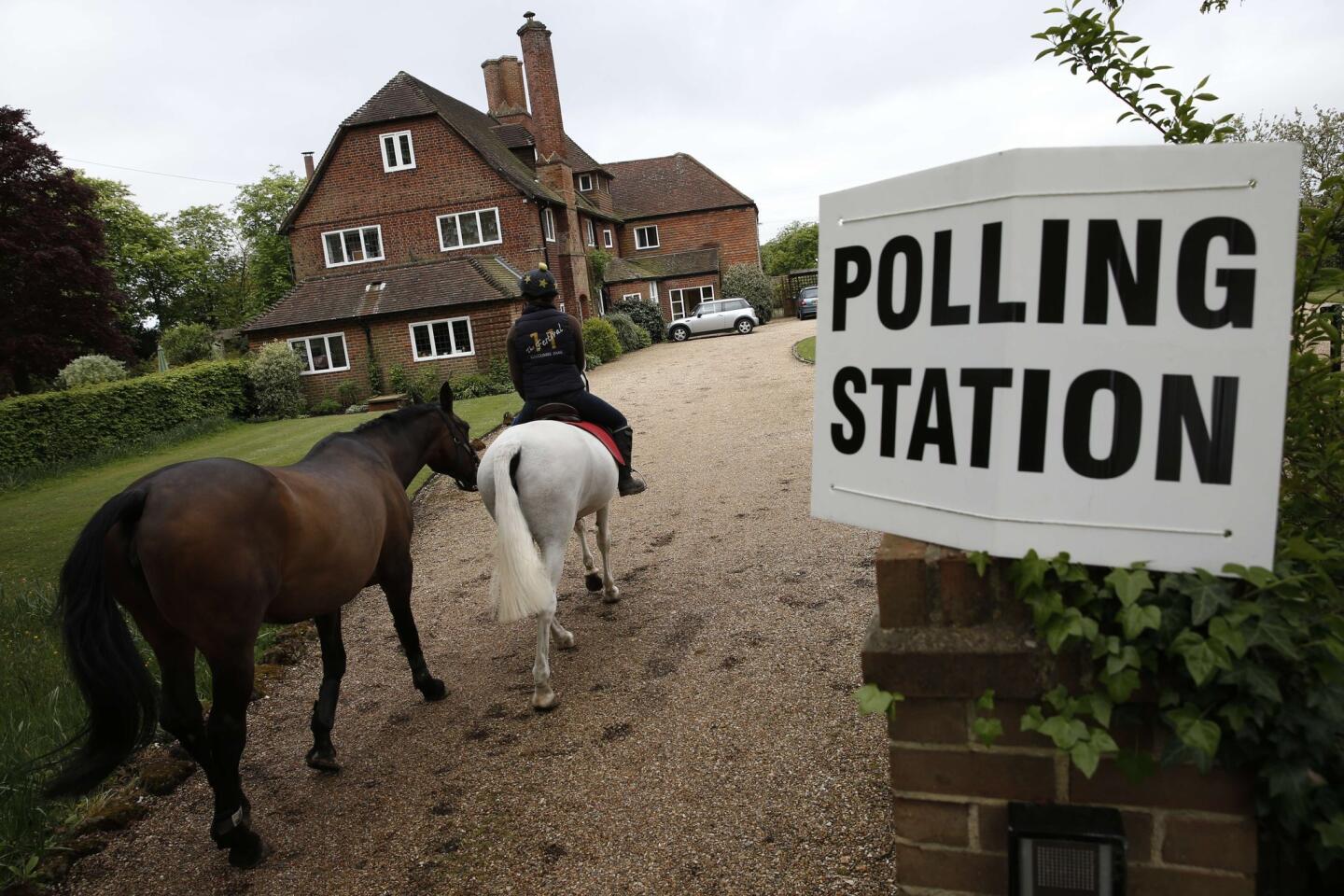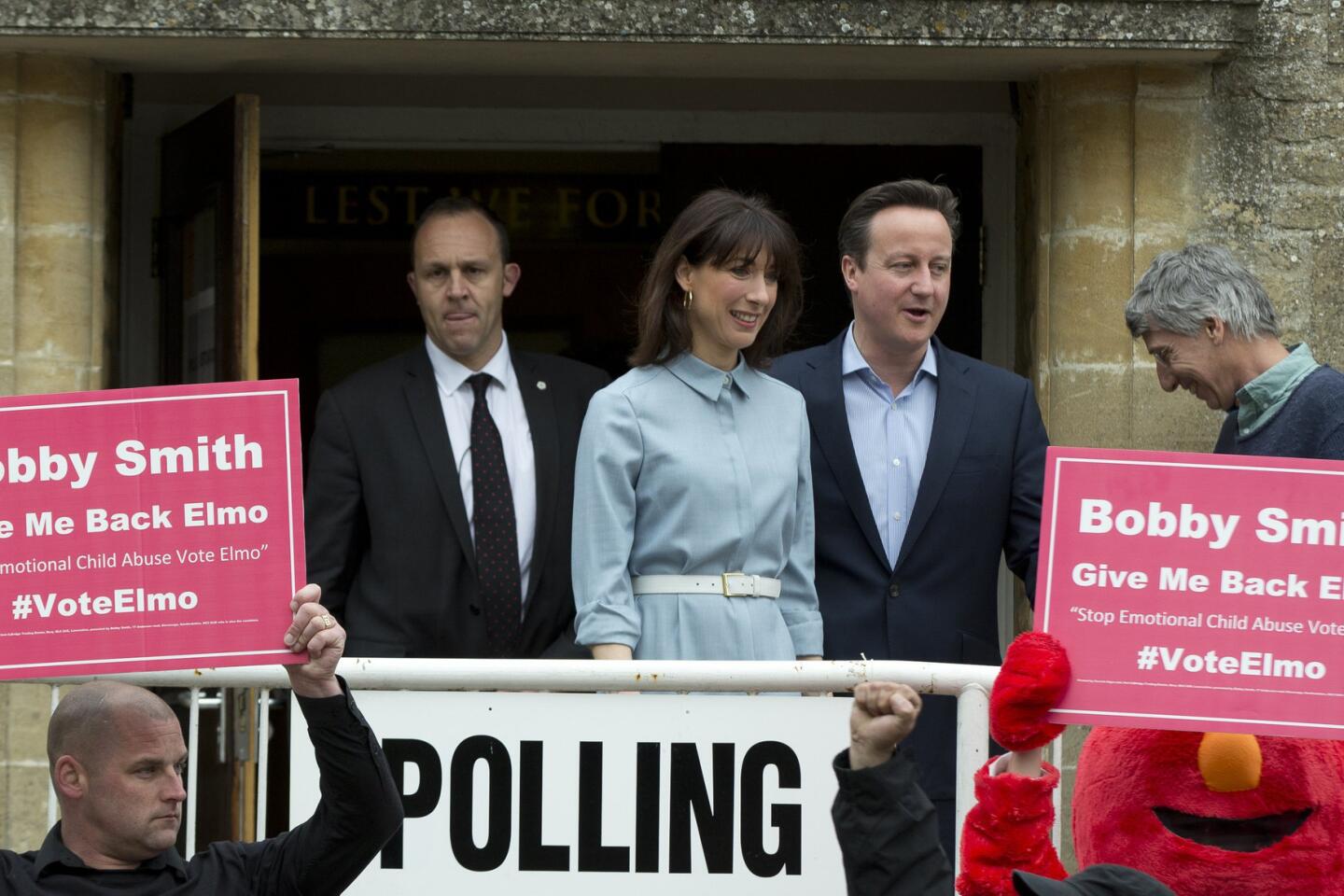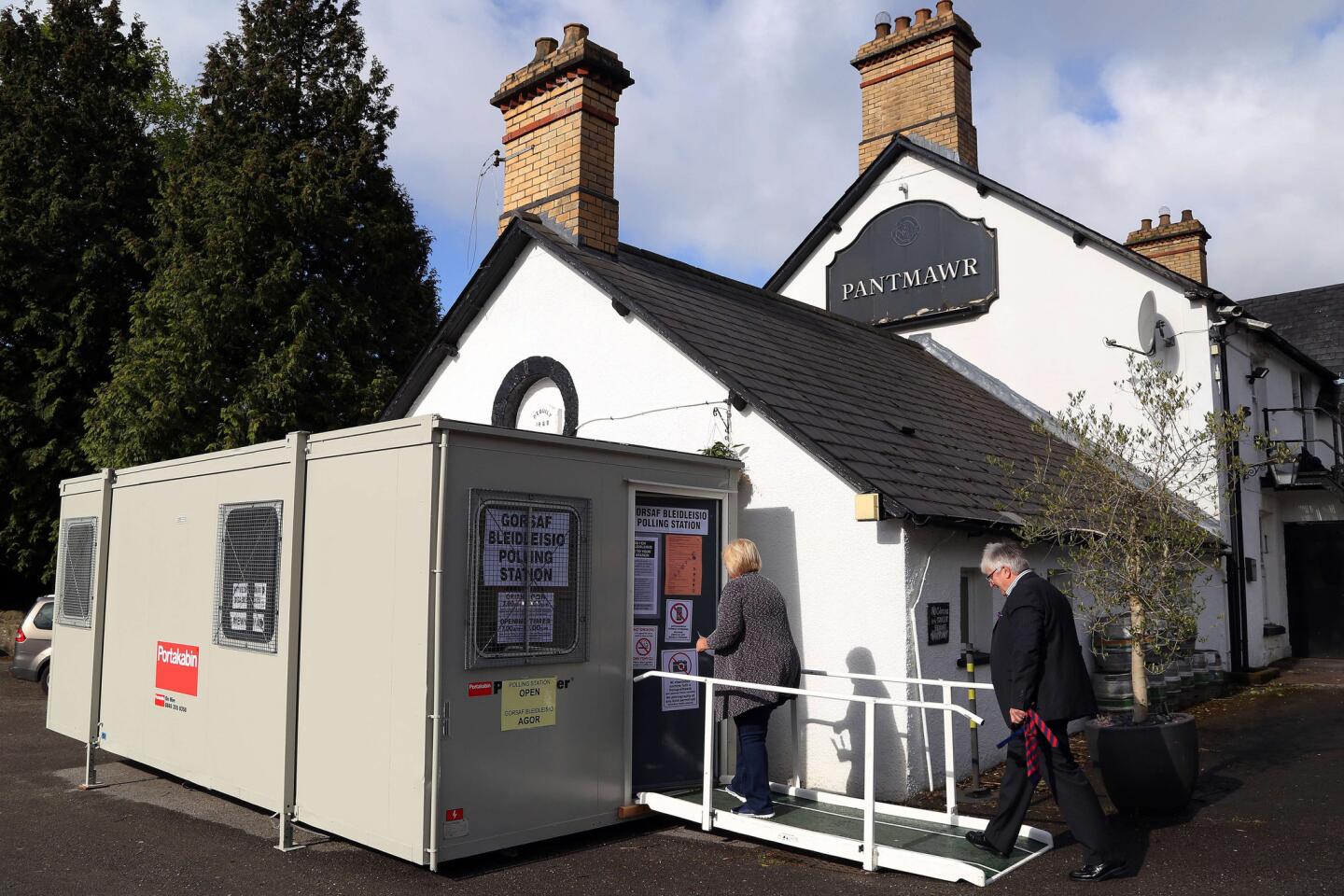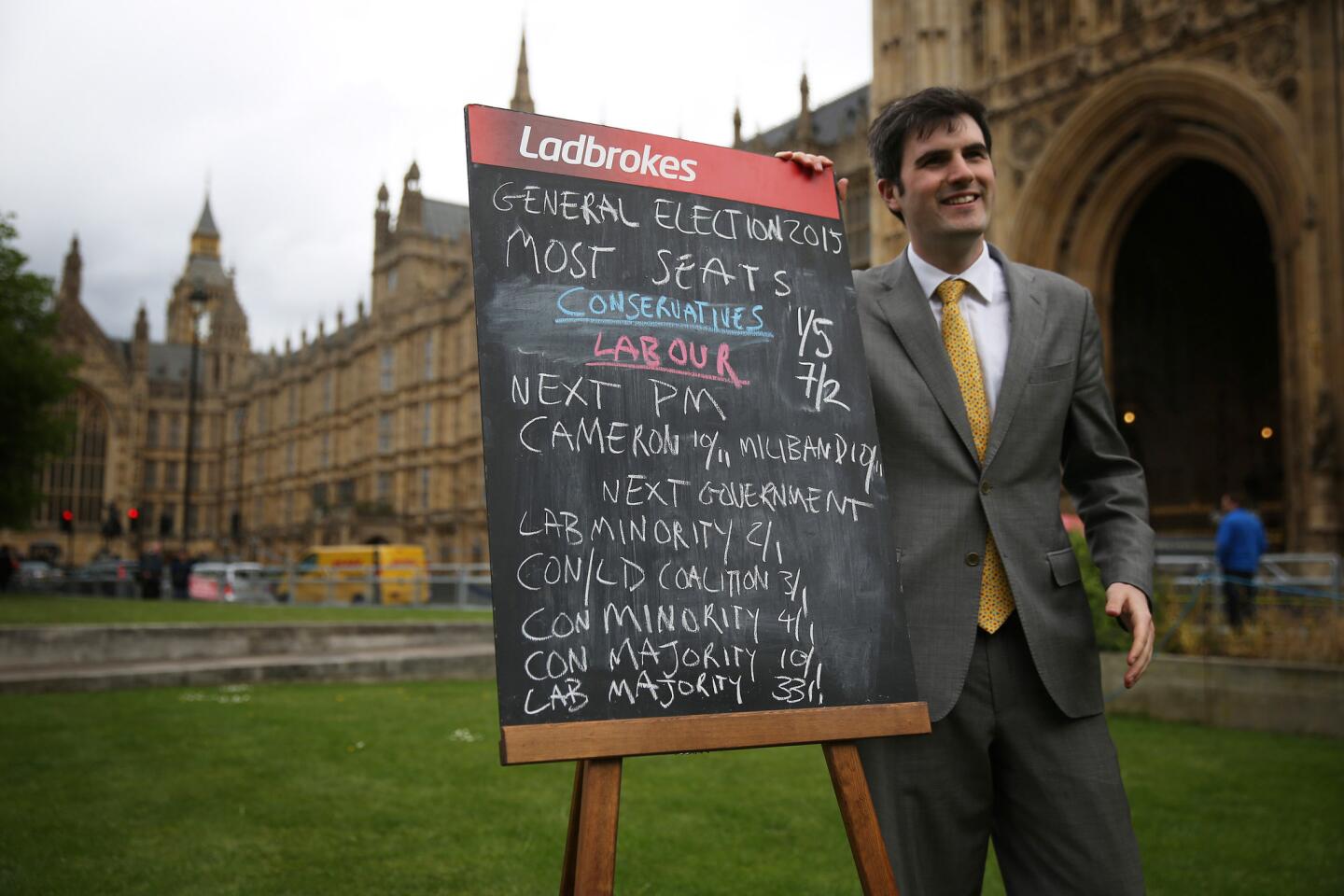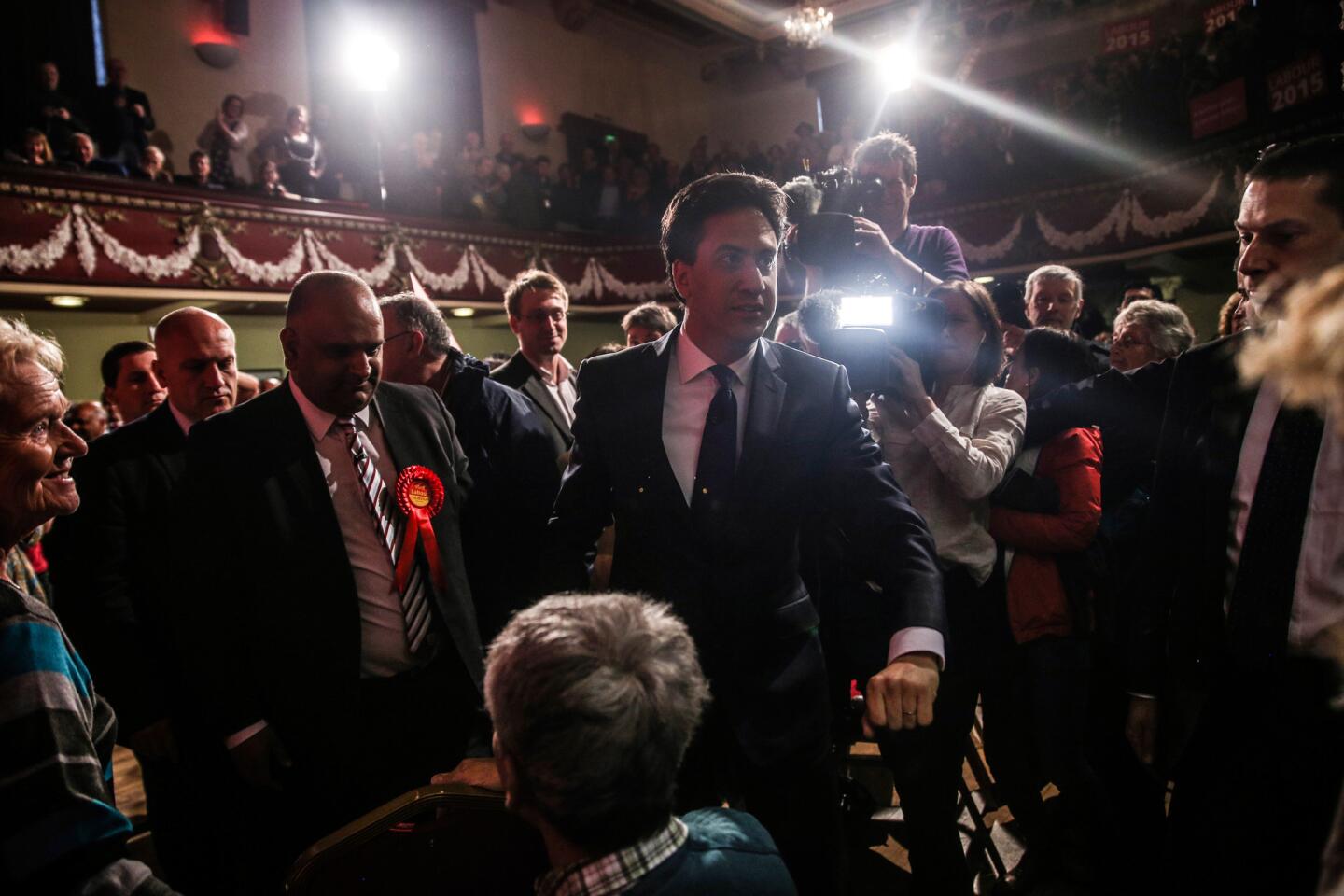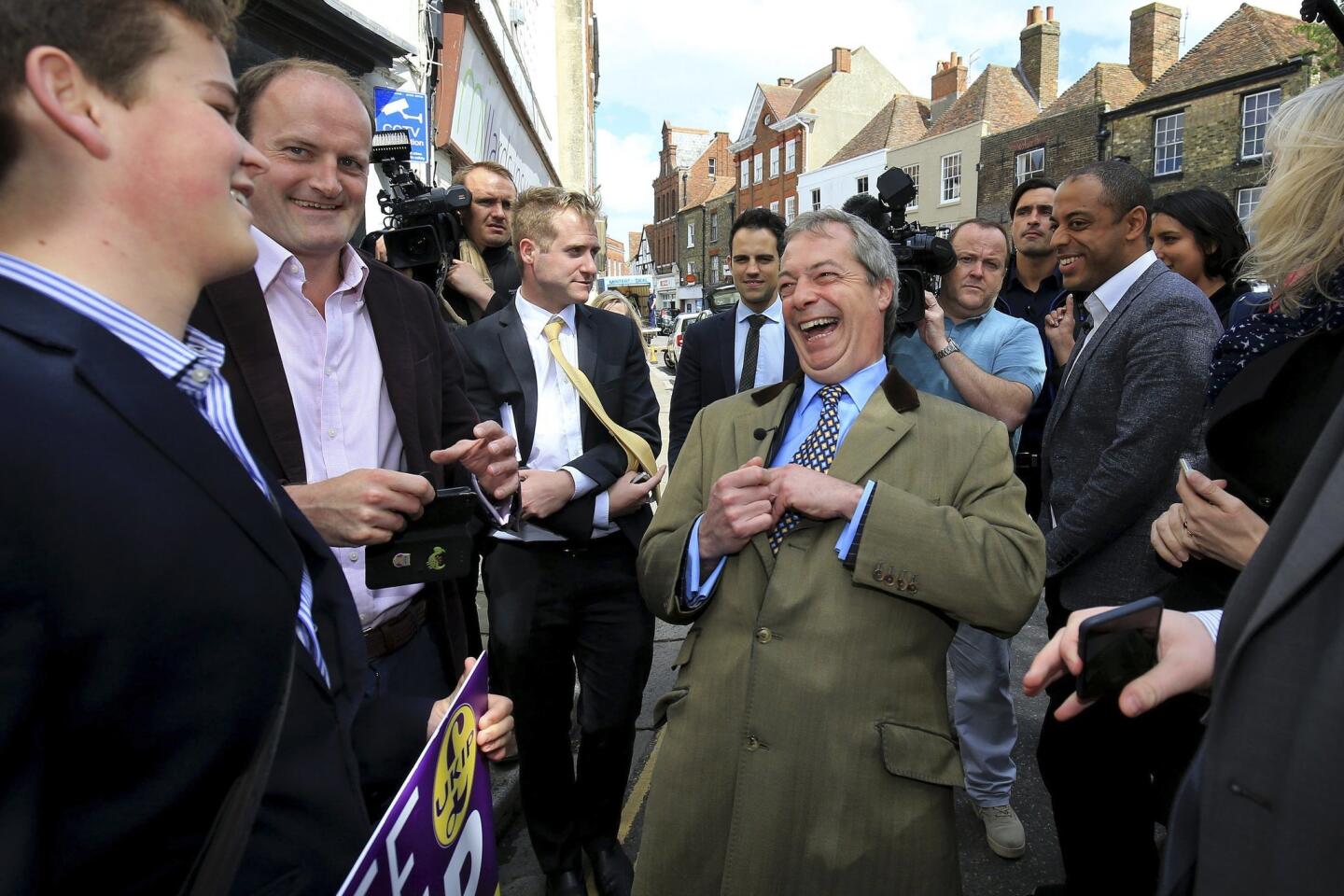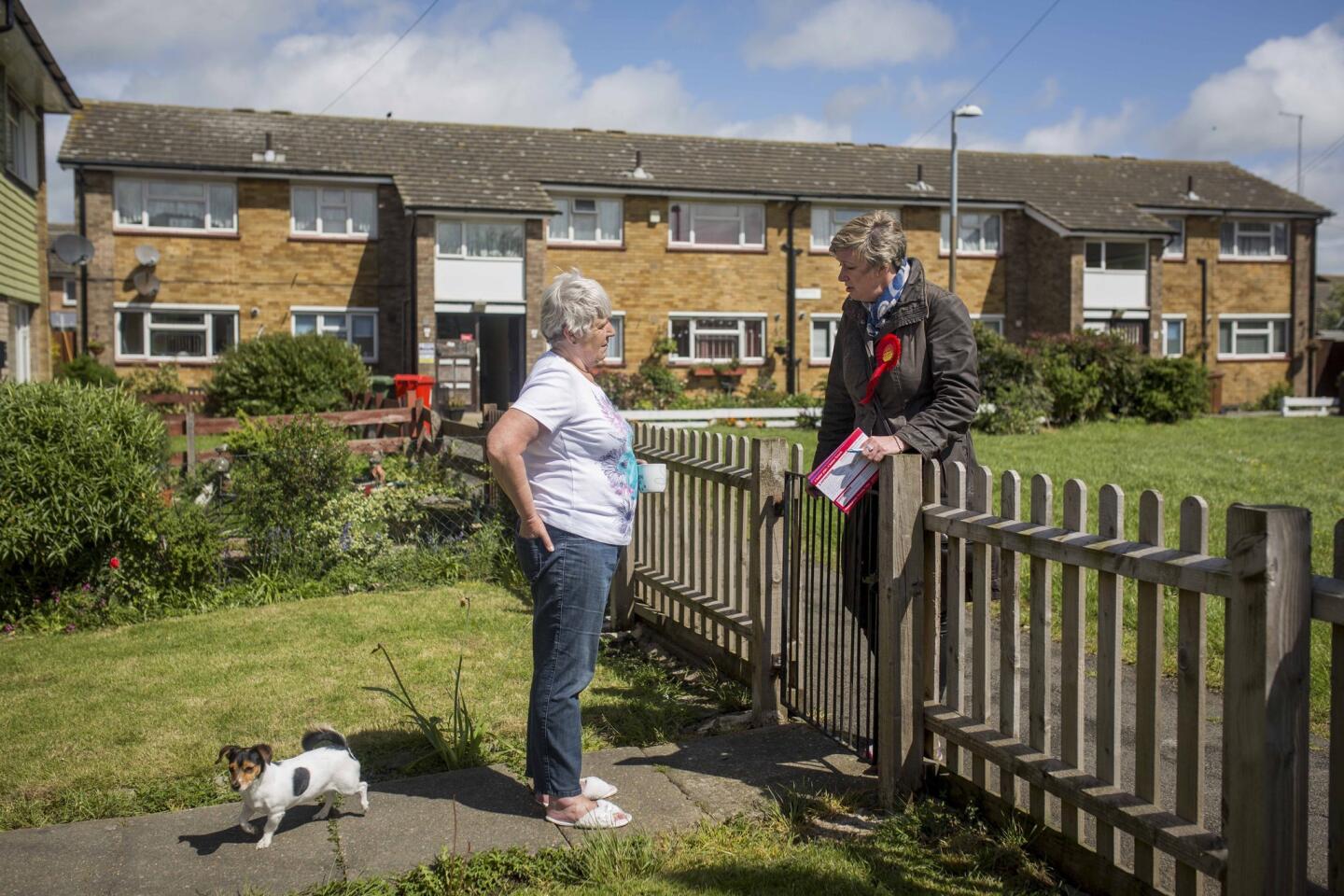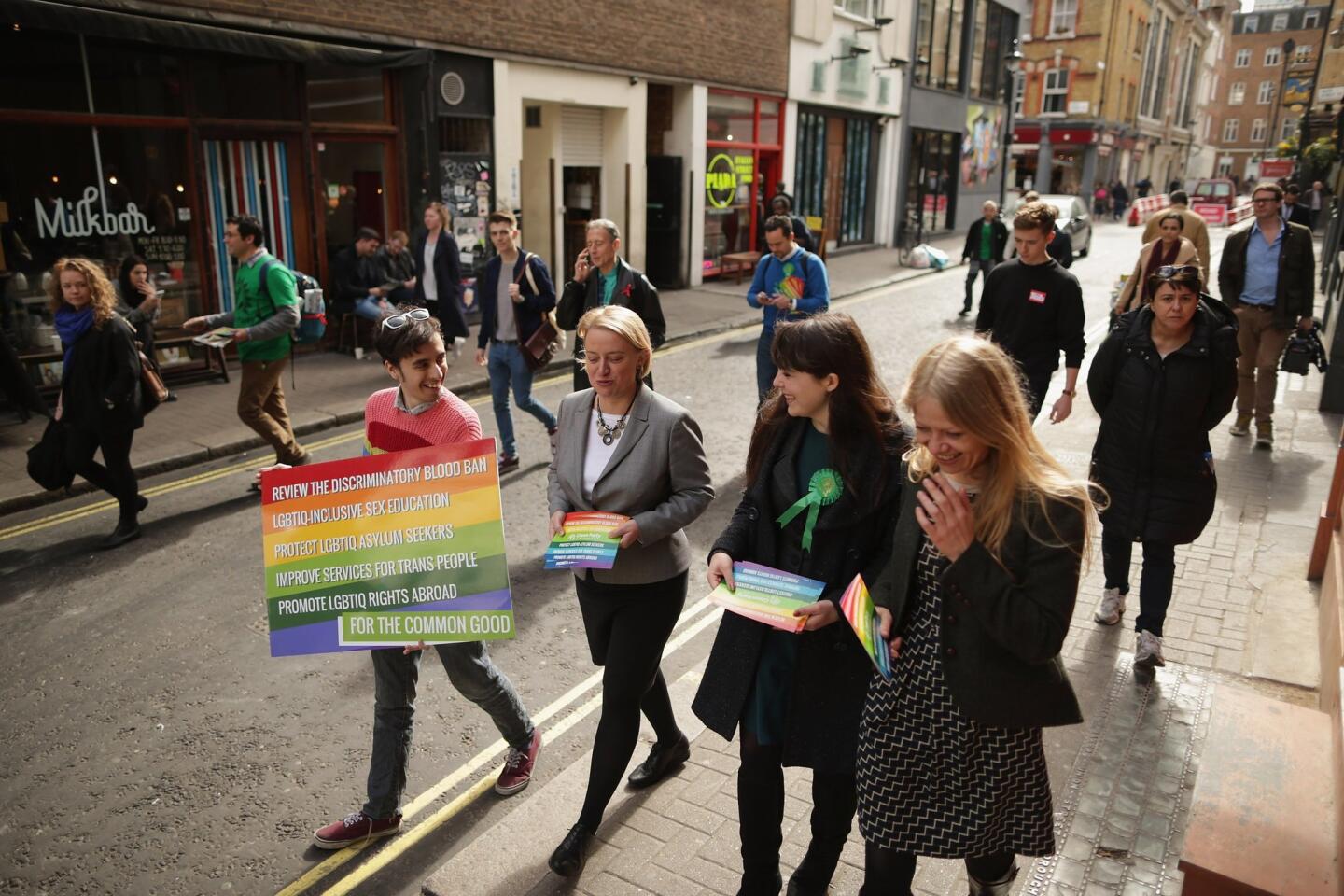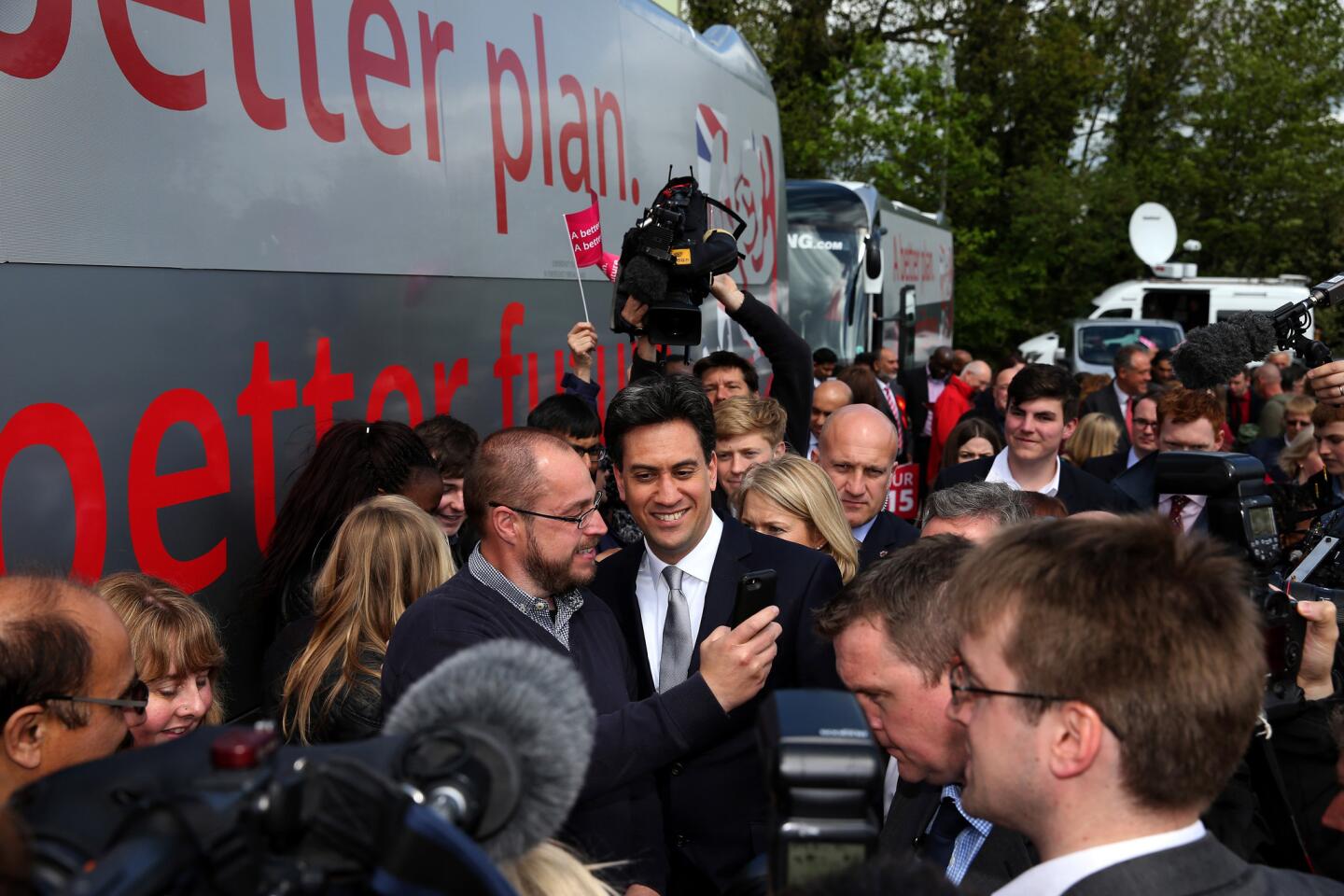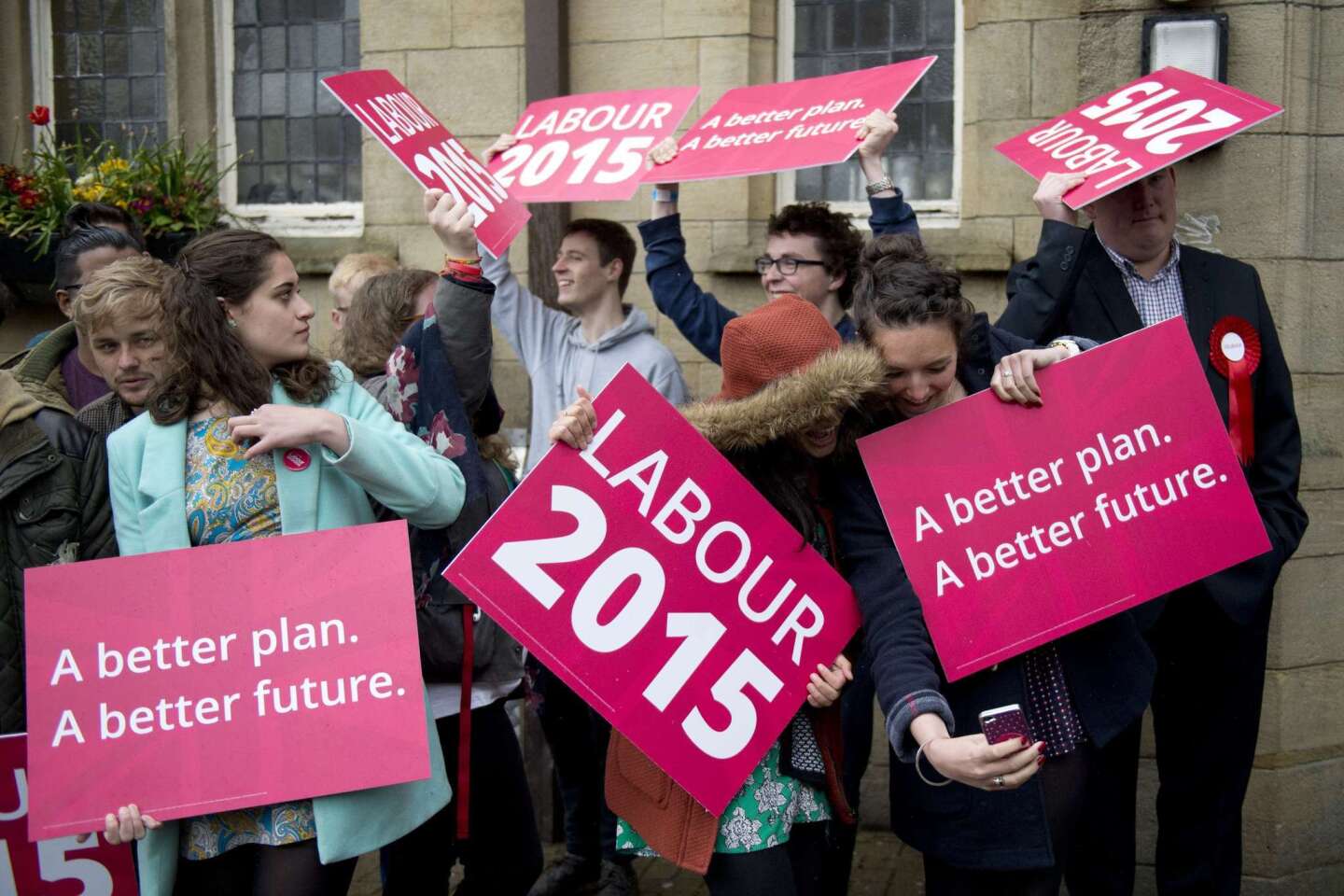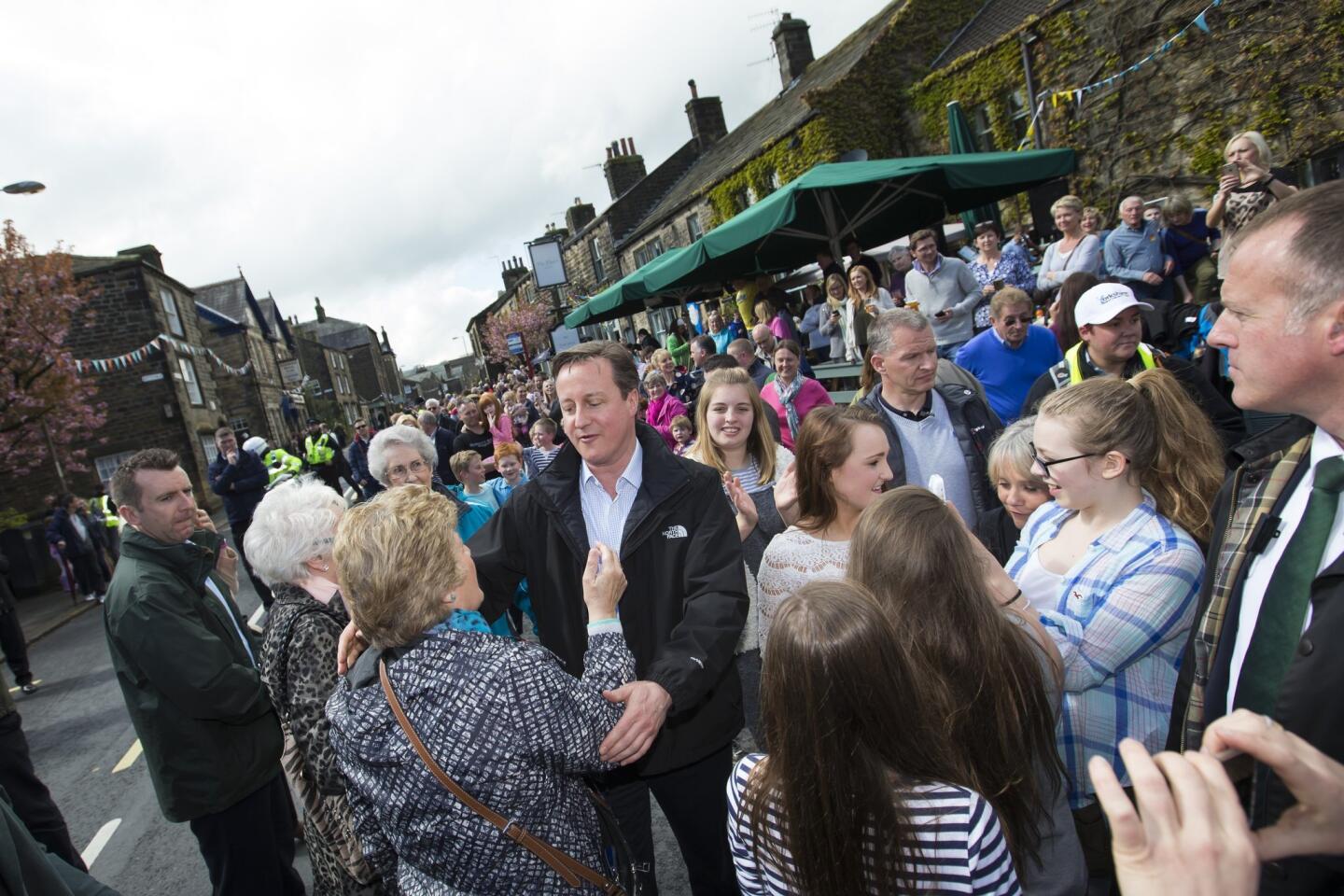Conservatives poised to return to power in Britain
- Share via
Reporting from London — British Prime Minister David Cameron’s Conservative Party unexpectedly surged ahead of Ed Miliband’s Labor Party in national elections Thursday, as early returns backed up exit polls suggesting that Cameron will have the votes needed to form a government and remain in power.
The Conservatives may have captured 325 seats in Parliament, enough for a slender majority, according to exit polls and early returns compiled by the BBC.
Coming on the heels of an election campaign in which polls had suggested a much closer result, the Guardian newspaper said the outcome “probably represents the biggest surprise in a general election since 1945.”
Cameron stopped short of declaring victory but sounded optimistic as he reclaimed his own seat in the House of Commons.
“I want to bring our country together, our United Kingdom together, not least by implementing as fast as we can the devolution that we rightly promised and came together with other parties to agree both for Wales and for Scotland,” Cameron said.
“In short, I want my party, and I hope a government I would like to lead, to reclaim a mantle that we should never have lost--the mantle of One Nation, One United Kingdom,” Cameron said. “That is how I will govern if I am fortunate enough to form a government in the coming days.”
The Labor Party, apparently suffering crippling losses in Scotland, was poised to win 232 seats, according to BBC forecasts.
“Clearly this has been a very disappointing and difficult night for the Labor Party,” Miliband said.
“We haven’t made the gains we wanted in England and Wales and in Scotland we have seen a surge of nationalism overwhelming our party,” he said.
In one of the most significant upsets, powerful Labor Party politician Ed Balls lost his seat after a quick recount by just 422 votes, to Conservative Andrea Jenkyns.
“I am confident Labour will be back,” Balls, who has acted as shadow chancellor, said in a concession speech.
The Liberal Democrats were forecast to win just 12 seats -- an outcome party leader Nick Clegg called “a cruel and punishing night.”
A near-certain winner was Nicola Sturgeon’s Scottish National Party, which exit polls indicated will take 58 of a possible 59 seats, up from six in 2010. Even if the exit polls prove to be generous, it is a striking comeback, with the party taking nearly all of Labor’s 41 seats in the northern region.
Its victories also set up the possibility that nearly 60 members of Parliament will be with a party of Scottish separatism, operating in a government fiercely opposed to those ambitions.
Leading up to election day, neither the Conservative Party nor the Labor Party was forecast to garner much more than one-third of the 650 seats in Parliament, meaning leaders would need to form a coalition to run the country. The election was considered among the most important in decades, with issues that include austerity policies, healthcare funding, as well as matters such as Britain’s relationship with the United States and the European Union.
Experts said exit polling is far from conclusive; indeed, though it was highly accurate in 2010, it missed the mark in the 1992 election.
“There’s still some room for doubt,” said Patrick Dunleavy, a politics professor at the London School of Economics. “But it certainly looks as if some voters shied away from the thought of change at the last minute.”
He said that if the numbers are correct, Cameron would not need any other major party to form a government, instead allying with several smaller pro-Conservative Irish parties to get the few additional seats.
A decisive Tory victory would be a remarkable turnaround for the prime minister, who many thought would be facing a messy postelection period, seeking to remain in power despite few available coalition partners. It could also spell doom for Miliband, who struggled to connect with voters.
During the campaign, Cameron said Labor would be held hostage by the SNP in a coalition scenario, and Miliband took Cameron to task over his plan for a referendum on Britain’s EU membership.
Economic concerns also figured into the campaign.
Miliband positioned himself as a candidate of the middle and working classes, despite charges that Labor had abandoned its blue-collar roots.
His line of thinking resonated with some voters.
“I’ve voted for somebody I hope will make a difference,” Claudine Thomas, 43, said Thursday. She voted for Miliband in her South London constituency because, she said, “I’d like to see somebody making changes that make sense for people like myself. I’m not rich, I’m not massively poor, I’m somewhere in between.”
Cameron, however, had said that relatively low unemployment meant his leadership had served working people, an argument that worked for Sheila Burns, who voted Conservative.
“I think perhaps [Cameron] needs another five years to sort us out,” said Burns, a retiree. “He hasn’t done that bad ... I just think, give him another try.”
Twitter: @ZeitchikLAT
Boyle is a special correspondent.
More to Read
Sign up for Essential California
The most important California stories and recommendations in your inbox every morning.
You may occasionally receive promotional content from the Los Angeles Times.
